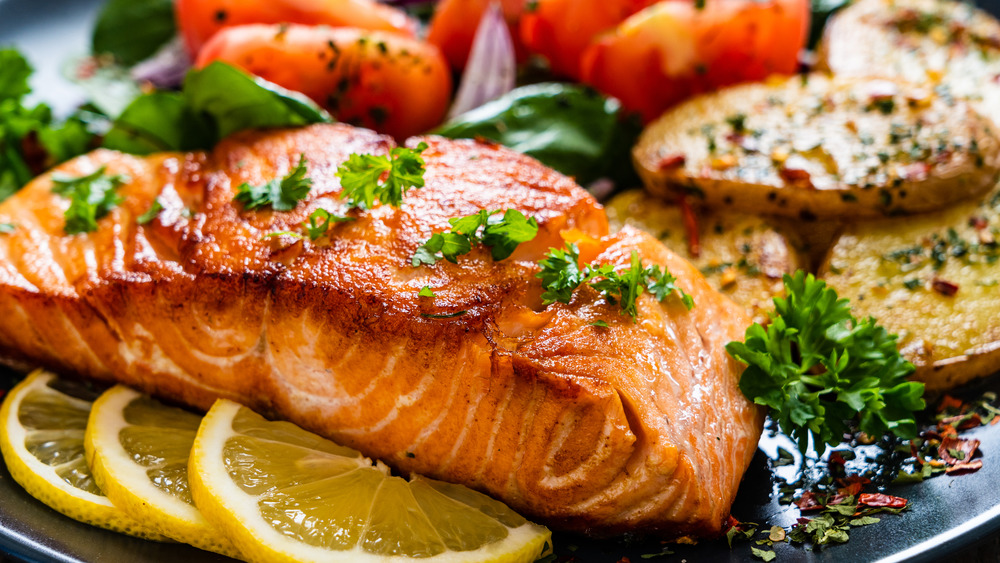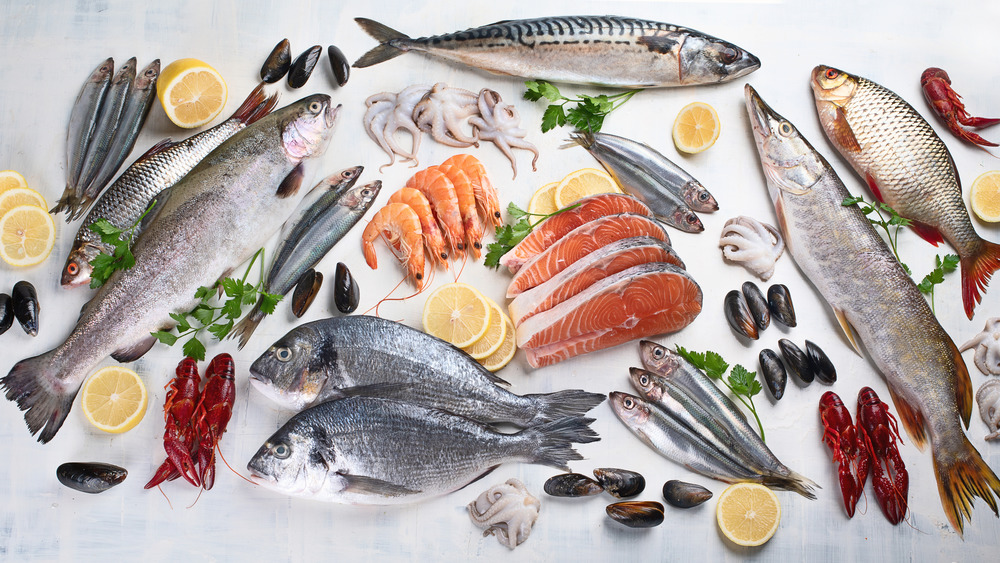This Is How To Tell If Your Seafood Is Actually Sustainable
As time progresses, more and more people are looking for sustainable ways to live. So much so, that it is altering the way that companies do business. A Business Insider article explains that gone are the days of careless shopping — a large portion of consumers are looking to forgo purchasing from companies with values that don't line up with their own. The Hotwire study cited in Business Insider found that about 47 percent of people globally had discontinued the use of products because they did not match their personal views on sustainability.
According to Iberdrola, some of the biggest and most important factors that impact sustainability are things like climate change and overfishing. While many are familiar with climate change, not many realize the impact that unsustainable fishing practices have on the environment. Overfishing can degrade ocean ecosystems and decrease global fish products and jobs in the long-term, per the World Wildlife Organization. This is why organizations like the Marine Stewardship Council created a list of standards and certifications to help combat unsustainable fishing practices.
Look for the little blue and white MSC label next time you buy fish
According to Allrecipes, the Marine Stewardship Council (MSC) is one of the many groups that has taken up the fight to ensure that the world's oceans aren't overfished. The MSC has created a system that allows for ocean-to-grocer tracking, ensuring the protection of the fish, local ecosystems, fishmongers, and more. The MSC's certification also ensures that the catch that was sustainably caught isn't mixed in with catch that was caught using less-than-desirable means. So next time you pop into your local Aldi, Kroger, or Whole Foods Market, look for a small blue and white label that says MSC on it.
Barton Seaver, a chef and sustainable seafood advocate, revealed to Cooking Light that there are a few simple things that people can do when they go out to eat or grocery shop to ensure they are getting sustainably-sourced seafood products. Seaver noted that people can use resources like Seafood Watch from the Monterey Bay Aquarium as well as looking for labels like that of the MSC that denote the seafood product as something that was sustainably sourced.

